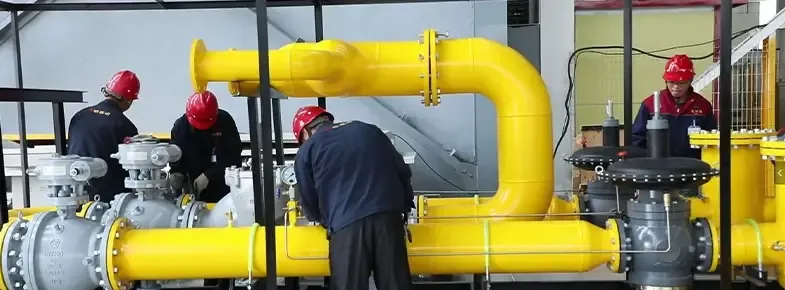
Sep . 21, 2024 18:00
Back to list
pressure pipe
Understanding Pressure Pipe Systems A Key Component in Modern Infrastructure
Pressure pipes are integral components of modern infrastructure, utilized in various applications ranging from water distribution to industrial processes. These pipes are designed to transport fluids under pressure, ensuring that water, gases, and other substances reach their intended destinations efficiently and safely. Understanding the characteristics, materials, and applications of pressure pipes is essential for engineers and policymakers to ensure the reliability of essential services.
Characteristics of Pressure Pipes
Pressure pipes are characterized by their ability to withstand internal pressures without bursting or leaking. The design of these pipes takes into account factors such as the type of fluid being transported, the temperature, and the pressure levels they will encounter. A crucial consideration in the design of pressure pipes is the thickness of the wall, which contributes to the overall strength and durability of the pipe. Additionally, the pressure rating, often specified in psi (pounds per square inch) or bar, indicates the maximum pressure the pipe can handle safely.
Materials Used in Pressure Pipes
Various materials are employed in the manufacturing of pressure pipes, with each material offering distinct advantages. Commonly used materials include
1. PVC (Polyvinyl Chloride) Known for its lightweight and corrosion-resistant properties, PVC pipes are widely used in water supply systems and drainage applications. They are affordable and easy to install, making them a popular choice for many municipalities.
2. Ductile Iron This material is known for its high strength and toughness, making it ideal for high-pressure applications and systems where durability is essential. Ductile iron pipes are commonly used in water and wastewater systems, and they can withstand harsh environmental conditions.
3. Steel Steel pressure pipes, both carbon and stainless steel, are utilized in various industrial applications, including oil and gas transport. Their strength enables them to withstand high pressures, but they require protective coatings to prevent corrosion.
pressure pipe

4. PE (Polyethylene) High-density polyethylene (HDPE) pipes are flexible, resistant to corrosion, and can be used for both potable water and wastewater applications. Their resilience makes them suitable for various ground conditions, minimizing the risk of leaks.
Applications of Pressure Pipes
Pressure pipes are employed in a wide array of applications across different sectors
- Water Supply Municipal water supply systems rely on pressure pipes to deliver potable water from treatment facilities to households and businesses. Proper maintenance and regular inspections are crucial to prevent leaks and ensure a continuous water supply.
- Irrigation Systems In agriculture, pressure pipes facilitate efficient irrigation systems by transporting water to crops. This is particularly vital in arid regions where water conservation is essential.
- Industrial Uses Many industries use pressure pipes to transport fluids, gases, and chemicals as part of their processes. Ensuring the integrity of these pipes is critical to maintaining workplace safety and compliance with environmental regulations.
Conclusion
In summary, pressure pipes play a pivotal role in the functioning of modern infrastructure, ensuring the reliable transportation of fluids in various applications. Understanding their characteristics and materials helps in making informed decisions regarding their installation and maintenance. As global demand for efficient water management and industrial processes increases, the importance of pressure pipes will only continue to grow, making them a vital component of our daily lives.
Next:
Latest news
-
Safety Valve Spring-Loaded Design Overpressure ProtectionNewsJul.25,2025
-
Precision Voltage Regulator AC5 Accuracy Grade PerformanceNewsJul.25,2025
-
Natural Gas Pressure Regulating Skid Industrial Pipeline ApplicationsNewsJul.25,2025
-
Natural Gas Filter Stainless Steel Mesh Element DesignNewsJul.25,2025
-
Gas Pressure Regulator Valve Direct-Acting Spring-Loaded DesignNewsJul.25,2025
-
Decompression Equipment Multi-Stage Heat Exchange System DesignNewsJul.25,2025

